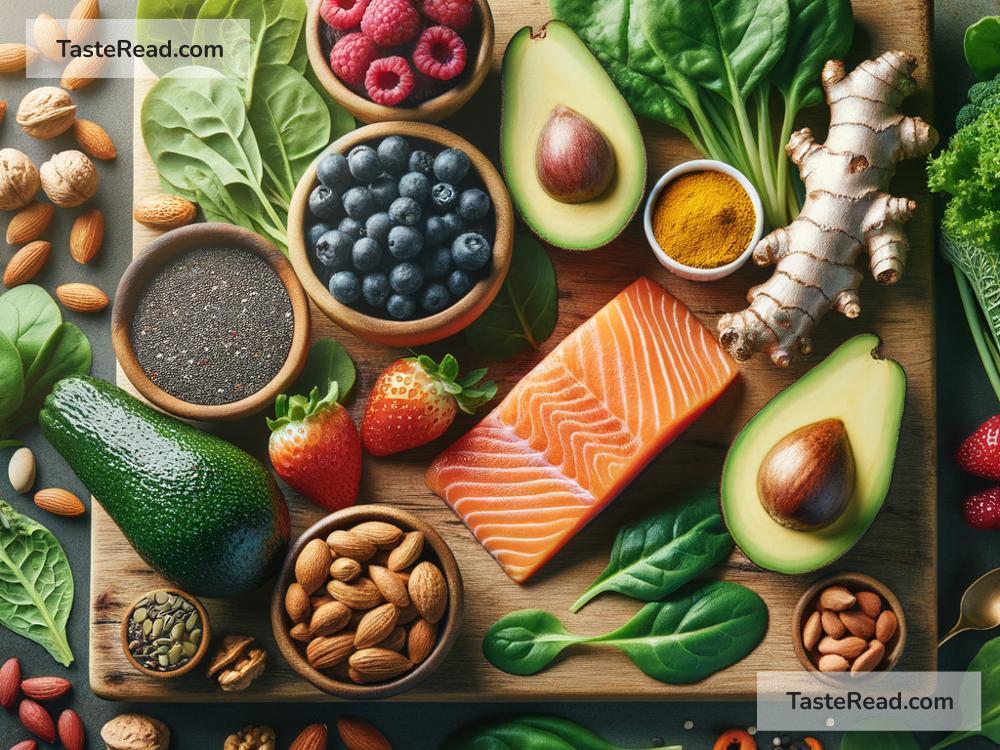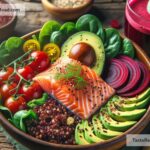Foods That Support Cellular Repair: Building Blocks for a Healthier You
Our bodies are like intricate machines, constantly working, growing, and repairing themselves. Every day, our cells undergo wear and tear due to stress, environment, and natural aging. Thankfully, our diet can play a powerful role in repairing these cells and keeping us healthy. The choices we make in the kitchen directly impact how well our body heals, protects itself, and thrives. This blog dives into the foods that support cellular repair, explained simply and clearly.
Why Cellular Repair Matters
Think of your cells as tiny building blocks that make up your entire body. They power your organs, skin, muscles, and every part of you. Over time, cells get damaged by factors like exposure to toxins, ultraviolet (UV) rays, stress, poor sleep, and unhealthy eating. If left unchecked, this damage can lead to inflammation, slower healing, and even chronic illnesses like heart disease or cancer.
Luckily, your body has systems in place to repair and replace damaged cells. Foods rich in certain nutrients can help supercharge these systems, ensuring your body performs at its best. So, let’s explore nature’s toolbox for cellular repair!
1. Antioxidant-Rich Foods: Fighting Free Radicals
Free radicals are unstable molecules that can wreak havoc on your cells, causing damage and aging. Antioxidants step in to neutralize these harmful molecules, protecting your cells and promoting repair.
- Berries: Blueberries, raspberries, and strawberries are loaded with antioxidants like vitamin C and flavonoids. These nutrients combat free radicals and support cell health.
- Dark Chocolate: (Yes, dessert can be healthy!) Dark chocolate contains antioxidants called polyphenols, which help protect cells from oxidative damage.
- Spinach: This leafy green is a powerhouse of antioxidants, including lutein and zeaxanthin, which protect and repair cells in your eyes and skin.
2. Protein-Packed Foods: Rebuilding Cellular Structures
Protein is essential for your body because it provides the amino acids needed to repair tissues and rebuild damaged cells. Amino acids are like the bricks your body uses to construct and repair its structure.
- Eggs: These are an excellent source of high-quality protein, providing amino acids that aid in cellular repair and muscle growth.
- Fish: Fatty fish like salmon, mackerel, and tuna are packed with protein and omega-3 fatty acids. Omega-3s help reduce inflammation and support cell membrane health.
- Beans and Lentils: For vegetarians or vegans, beans and lentils are great plant-based protein options that assist in cell recovery.
3. Healthy Fats: Strengthening Cell Membranes
Every cell in your body has a membrane – a protective barrier that helps it function correctly. Healthy fats strengthen and nourish these membranes, making cells more resilient.
- Avocados: Full of monounsaturated fats, avocados help repair cell membranes and support overall skin health.
- Nuts and Seeds: Almonds, walnuts, and flaxseeds are rich in healthy fats and vitamin E, which protect cell walls and aid in repair.
- Olive Oil: This heart-healthy oil contains antioxidants and helps maintain the integrity of your cells.
4. Vitamins and Minerals: The Helpers Behind the Scenes
Certain vitamins and minerals act as “assistants,” helping enzymes and proteins work efficiently to repair damaged cells. These nutrients are vital partners in cellular recovery.
- Vitamin C: Found in citrus fruits like oranges and lemons, vitamin C aids in collagen production and repairs tissue damage.
- Zinc: Zinc is crucial for healing wounds and repairing damaged DNA. You can get zinc from foods like pumpkin seeds, chickpeas, and shellfish.
- Magnesium: This mineral plays a role in energy production and repair. Get magnesium from foods like bananas, spinach, and whole grains.
5. Foods With Anti-Inflammatory Properties: Reducing Cellular Stress
Inflammation is your body’s natural response to injury or infection. But chronic inflammation can harm cells and slow down repair. Thankfully, some foods fight inflammation while promoting recovery.
- Turmeric: This golden root contains curcumin, a compound that reduces inflammation and supports cell health. Pair it with black pepper to boost absorption!
- Ginger: Known for its soothing effects, ginger combats inflammation and aids in cellular recovery.
- Green Tea: Rich in catechins, green tea fights inflammation and oxidative damage while supporting overall health.
6. Hydration: The Unsung Hero of Cellular Repair
Water doesn’t often get the spotlight, but staying hydrated is essential for cellular repair. Without proper hydration, your body struggles to deliver nutrients to cells and flush out toxins.
- Make sure to drink enough water daily, and add hydrating foods like cucumbers, watermelon, and celery to your diet.
Putting It All Together: A Balanced, Cell-Healing Diet
To support cellular repair, focus on whole, nutrient-rich foods. Combine proteins, healthy fats, antioxidants, vitamins, and anti-inflammatory ingredients in every meal. For example, start your day with oatmeal topped with berries and almonds, enjoy a spinach and avocado salad for lunch, snack on dark chocolate and green tea, and end the day with grilled fish and turmeric-seasoned roasted vegetables.
With consistent choices, you’re giving your body the tools it needs to repair itself, stay strong, and fight off damage. Remember, cellular repair isn’t just about what you eat today – it’s the result of long-term habits that nourish your body over time.
Final Thoughts
Food is truly nature’s medicine. By eating nutrient-rich foods that promote cellular repair, you’re helping your body heal, grow, and stay resilient. Start incorporating these simple changes into your diet, and you’ll be supporting your health on a deep, cellular level. After all, happy cells mean a healthier you!


